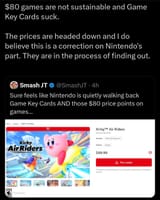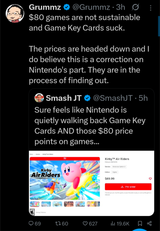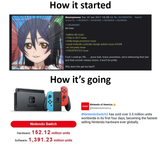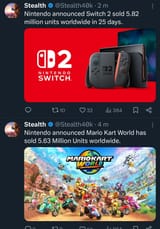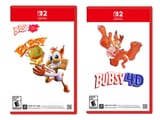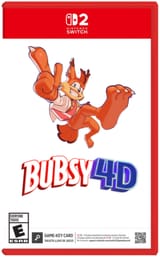>>718522032
A physical card that gives you a license to download and launch software.
Nintendo offered them as an option, because the genuine physical releases with data on the game card became much, much more expensive to produce due to the type of flash memory they're using, same as microSD express I think?
Think of it like the difference in performance between an HDD and an SSD, as well as the price per gigabyte, and apparently the fact that the minimum Switch 2 cartridge size is 64GB (no cheaper 1/2/4GB options like on Switch 1).
This is why a bunch of partner publishers like Capcom and SEGA suddenly flocked to Game-Key releases for launch. Capcom apparently count Game-Key sales as digital sales instead of physical due to this, but they wanted their retail presence and to have "physical" items for sale on web stores.
Game-Keys have an advantage in that once you've finished using the game, you can put it into the used games market to get some cash back, or buy a cheaper copy.
However, Game-Key releases require an internet connection to even start playing the game, and like any other physical game card you can only have one inserted at a time, so it loses out on the digital advantage of having multiple games loaded to boot any time.
Game-Key releases also had to compete with the digital sales environment, and have zero appeal to physical collectors who want lasting physical goods.
So, as a result publishers are finding out that Game-Key releases don't fucking sell, whilst the ones that DID go for genuine physical releases are being rewarded.
Publishers have also been dicks about not providing Switch 2 editions of Switch 1 games. No upgrade paths for shit like Sonic x Shadow Generations, Dragon Quest III HD-2D, etc. Customers feel even more burnt for having bought the Switch 1 versions of games that have limited features, performance or graphics compared to Switch 2.
